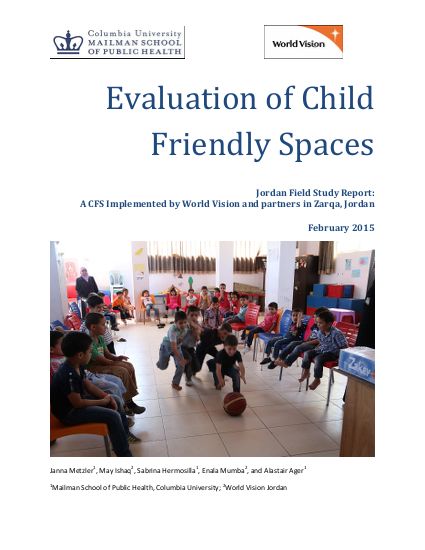A CFS Implemented by World Vision and partners in Zarqa, Jordan

This study is part of a three-year research collaboration between World Vision International and Columbia University, involving the financial support of World Vision Australia, World Vision UK and UNICEF. The goals are to document the protective and restorative effectiveness of Child Friendly Spaces (CFSs), to identify good practice in their design and implementation, and to contribute to the development of better monitoring and evaluation tools for this type of programming. Little robust evidence exists related to outcomes and impacts of CFSs even though it is one of the most widely used interventions in humanitarian settings for child psychosocial support and protection.
This study was conducted with Syrian refugees in an urban setting in Zarqa, Jordan during the months of February to August 2014. Interviews were conducted during a one-week registration period hosted by partner staff and preceded by awareness campaigns in the community. Measurement tools were selected to assess impact in three areas in line with the programme’s key objectives: (a) the protection of children from risk, (b) supporting caregivers and communities in strengthening systems of child protection, and (c) the promotion of children’s psychosocial wellbeing (including the acquisition of skills and knowledge).
